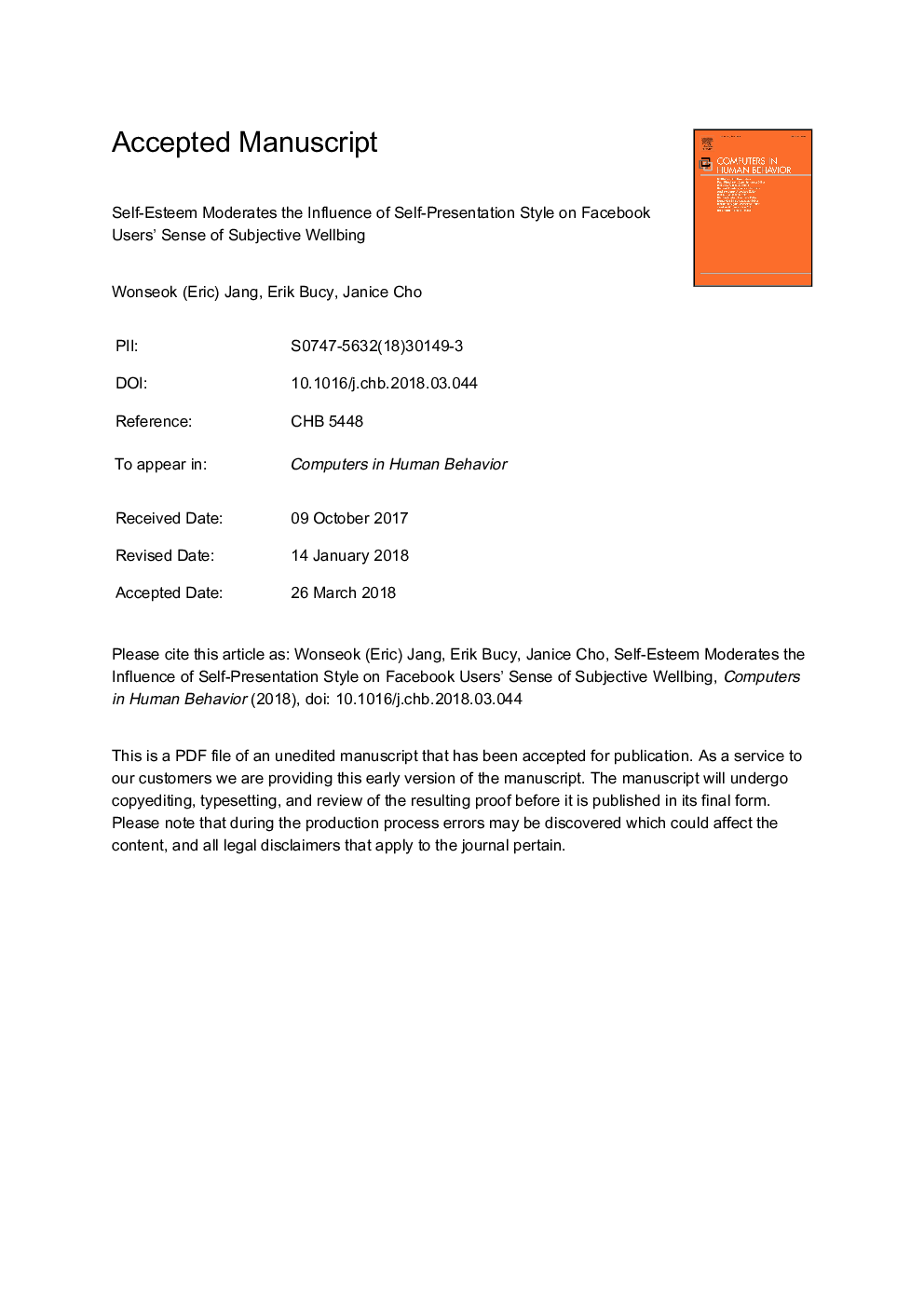| Article ID | Journal | Published Year | Pages | File Type |
|---|---|---|---|---|
| 6835915 | Computers in Human Behavior | 2018 | 46 Pages |
Abstract
This study examines the extent to which self-esteem moderates the influence of self-presentation style (true self versus strategic self) on Facebook users' subjective well-being, including measures of self-reported happiness and subjective vitality. To investigate this relationship, we conducted two experimental tests involving actual Facebook users recruited from Amazon.com's Mechanical Turk platform. The results of Experiment 1 indicate that the use of a true self-presentation style leads to greater self-reported happiness for high self-esteem users compared to low self-esteem users. By contrast, the use of a strategic self-presentation style results in more self-reported happiness for both high- and low-self-esteem users. Following self-determination theory, which emphasizes the importance of feeling effective in one's environment, a mediation test was further conducted in Experiment 2, demonstrating that revealing a true self on Facebook effectively satisfies the high self-esteem user's need for competence, thus explaining greater degrees of self-reported happiness.
Related Topics
Physical Sciences and Engineering
Computer Science
Computer Science Applications
Authors
Wonseok (Eric) Jang, Erik P. Bucy, Janice Cho,
